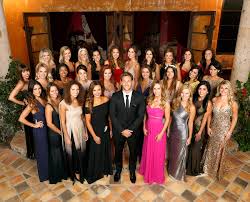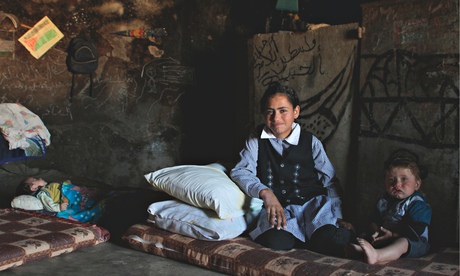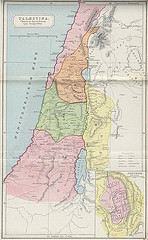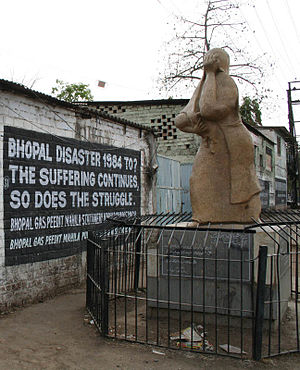In an interview on Radio-Canada’s Second regard, Daniel Ferguson, the producer of Jerusalem 3D by National Geographic Entertainment, says and indicates at the beginning of the film to the viewers, that this film will not touch the Palestine Israel conflict.
Daniel Ferguson, a Montrealer, who traveled to Jerusalem, with the documentary crew and with his family, shared his fascination for a place that he describes as beautiful. He mentions in the Radio-Canada interview that, for this documentary, he asks a boy who is Jewish if he has friends who are Christian or ‘Islamic’, as Ferguson puts it. And Ferguson relays that the boy replies that he doesn’t or is not interested. Ferguson then says to the journalist that the boy’s answer struck him as to how people in Jerusalem live in their own bubble.
Is the author of this documentary aware that the government and military of Israel occupy Palestine in its entirety and spend billions of dollars in building physical barriers, and social, economic and psychological barriers so that a Palestinian person cannot come in contact with an Israeli Jewish person? And that road divisions and other methods forbid Palestinians from coming in contact with other Palestinians?
Can a work such as a documentary or newspaper article hold any credence or value if it is incomplete in its presentation of the context and of facts?
As a Palestinian, an Arab, a Muslim and a human rights activist, I cannot watch this. Nor can I watch a film that chooses to show an image that is not congruent with the place it chooses as its muse. Especially, if this place is marked by grave violations to the lives and rights of its inhabitants, dead or alive, or to its natural environment.
It is like the time when the daily Metro newspaper, distributed in subway stations and city bus stations, published a two-page feature on tourism in Israel. Not one word appears about the historical land of Palestine, Palestinians, or that for a century now, apartheid is built and people suffer by being forcibly displaced, imprisoned, murdered, maimed and traumatized.
If this tourism article even plainly said: hire a tourism guide to view the apartheid wall, checkpoints and camps of the displaced indigenous population, it would be less offensive. As hypocrisy offends.
Coming across this article is not like seeing an advertisement in the Montreal Gazette, a mainstream newspaper, asking the reader to visit Israel and writing: Once you visit Israel, you are not the same. While the motto carries truth, this is a paid advertising – albeit willing published in a newspaper that should reconsider publishing tourism ads about a place that violates International law and every United Nations resolution that relates to the human rights of the indigenous population in Palestine Israel.
However when a newspaper publishes an article inviting readers to visit Israel and hire a tour guide, this is grave. Do the editors, authors, and financiers of this newspaper know that Israel is created and sustained through apartheid and war crimes? This question is alarming enough. Or, is it that the whole crew of this news publication does not care that their article demonstrates complete ignorance and insensitivity to a long-lasting and current human rights struggle?
It is perplexing and insulting. And cannot contribute to the universal healing we need today. I feel like every person around the planet needs to turn to the next person and say: I am sorry. I acknowledge your pain. I am sorry if I had a role in inflicting it. I will work to end the suffering for your healing and mine.
Only then can we collectively turn the page on the legacy of colonialism and discrimination that still inhabit our society.
I attended a presentation by a university professor in the field of social work who is the daughter of survivors of World War II. She recently published a book on how to help survivors of genocide and other traumas. Her focus is on Jewish survivors of World War II. I asked her if acknowledgement of the atrocities committed during World War II by German authorities and by Germans help in the healing process? Her response is: yes, immensely.
Every people who suffered and still suffer deserve and need acknowledgement and adequate reparation by those responsible for the crimes inflicted on them, their children and their ancestors.
Standing in the midst of a crowd in Montreal in front of the office of the premier of Québec during a protest to denounce the silence on the crimes against humanity that were happening in Gaza as of July, 2014, I heard a boy who was walking by, ask his father: What is this protest for? The father replies: The Arabs and Jews over there fight because they can’t get along.
The perpetuation of this harmful myth needs to stop. To this day, journalists or professors or others, mainly in Canada and the USA, surprisingly demonstrate a complete ignorance of the true nature behind the suffering in Palestine Israel. Land, water, mineral, gas possession. Otherwise, why are Jews, Christians, Muslims, Buddhists, Atheists, Agnostics, not inclusively and equally welcome to live in the place called the State of Israel?
Nor can I see documentaries, films, or books that authentically present Palestine. Whether these books or films are about Palestine’s beauty before its British and current Zionist Israeli occupation, or about the Palestine ravaged by colonialism. Both – before and after Palestine – are equally painful. To see how something you love was before the damage, is just as painful.
I once invited a journalist and author to Montreal to present his latest work on the Zionist occupation and oppression of Palestinian life. Before the talk, he asked me on my thoughts about his book. I answered without qualms that I have not read his book nor will I. I cannot. I cannot read more about Palestinian suffering at the hands of a brutal apartheid.
I replied: You wrote this for them, the Zionists, and for others who are unaware of this man-made tragedy. I cannot read more about the torture, senseless imprisonment, confiscation and destruction of lands and trees and homes, the damaging of youth and family and civil resistance.
I cannot. Why should I? It would be masochistic. Should the recipient of illegal, discriminatory and violent treatment be the reader of works describing this illegality and immorality? Should I read about how my people and other peoples are suffering at the hands of soldiers, governments, and corporations and their employees? These works by journalists, authors, artists and activists are for those unaware. Or people who are involved in the inflicting of pain or who are involved in aiding the inflicting of pain. So they may become aware of the wrongdoing on the people and the nature, and the wrongdoing on themselves and their souls.
As a Palestinian professor from Birzeit University clearly says: ‘’Ending violence, invasion, colonization, colonialism, oppression, segregation, apartheid, disrespect, discrimination of anyone, saves all of humanity, including the humanity of those doing the oppressing.’’ This professor is Samia Botmeh, who resides in Ramallah and is born in a Palestinian village near Jerusalem. Samia is a visiting professor currently in Montreal. At the screening and discussion of the documentary film Roadmap to Apartheid, Samia shares that she can travel to Montreal but has been unable to visit Jerusalem for the last six years because she is a Palestinian. I wonder what Samia thinks of the film Jerusalem 3D currently shown at the Montréal Science Centre? I will ask her on the Wednesday March 11, 2015 edition of Caravan, broadcast at 2:00 pm EST on CKUT radio 90.3 FM in Montreal or streaming around the world at http://www.ckut.ca. This will be an hour discussion with Samia on her daily life in Palestine Israel and as part of the 2015 edition of Israeli Apartheid Week.


















